Is Yucatan Safe? – The Complete Guide for
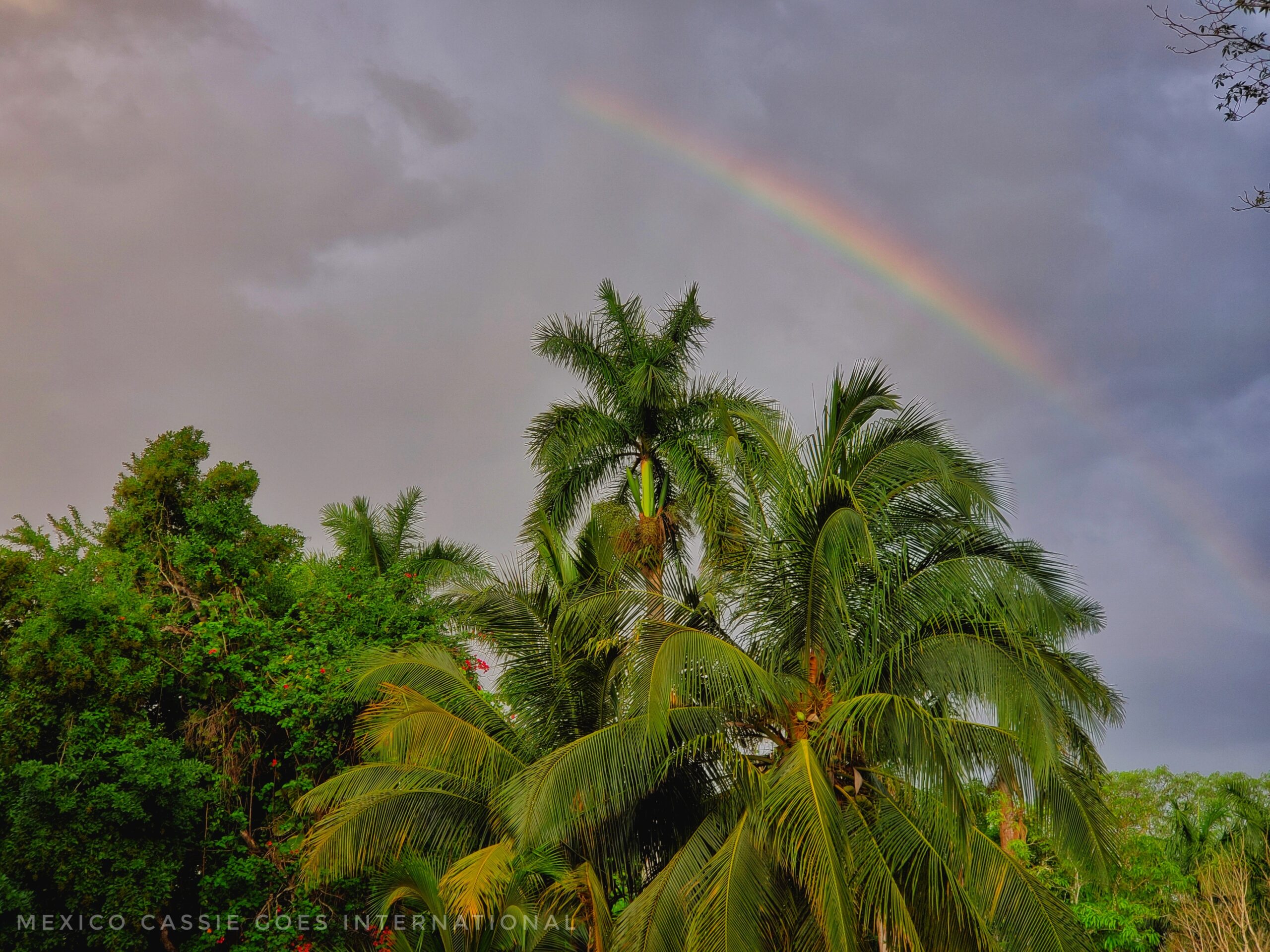
If you are considering or planning a trip to Yucatan, chances are you’re already pondering the question, “is Yucatan safe?” You might have even been asked this by others, showing a sweet but unnecessary concern for your safety.
We don’t blame you for asking: Mexico gets a bad rap internationally and popular Netflix series highlighting drug cartels and organised crime don’t help the country’s image anymore than does the western media’s tendency to exaggerate.
However, it’s important to remember that Mexico is a very large country and yes, there are some places that you should avoid but there are also many that are perfectly safe and well worth your time for a trip. There is no safer place in Mexico or the United States than the state of Yucatan.
I could end the article here. There are no caveats to this statement. And yet I know you have questions so I will endeavour to address them all below.
Why am I qualified to answer the question, “Is Yucatan Safe?”
As a Yucatán resident about to celebrate six years in the region, my love affair with Yucatan started long ago. My first visit was back in early 2006 when my Mexican fiancé and I were looking for a good location to get married. My Mexican mother-in-law-to-be suggested Merida. She had spent her honeymoon here forty years earlier and had fond memories, saying that the Meridanos were the nicest of all the Mexicans and that Yucatan was the safest region in Mexico. I agree, I live here, I travel around the region and most importantly, I’m bringing up my kids here.
In this complete guide to whether Yucatan is safe we will consider:
✅ Official statistics and statements about Yucatán’s safety
✅ Eating and drinking safely in Yucatán
✅ Safety while travelling around Yucatán and on the roads in Yucatán
✅ Attitudes towards sexuality, sex and gender in Yucatán
✅ Drug use in Yucatán
✅ Environmental safety issues in Yucatán
✅ Safety in the main towns of Mérida, Valladolid and Progreso
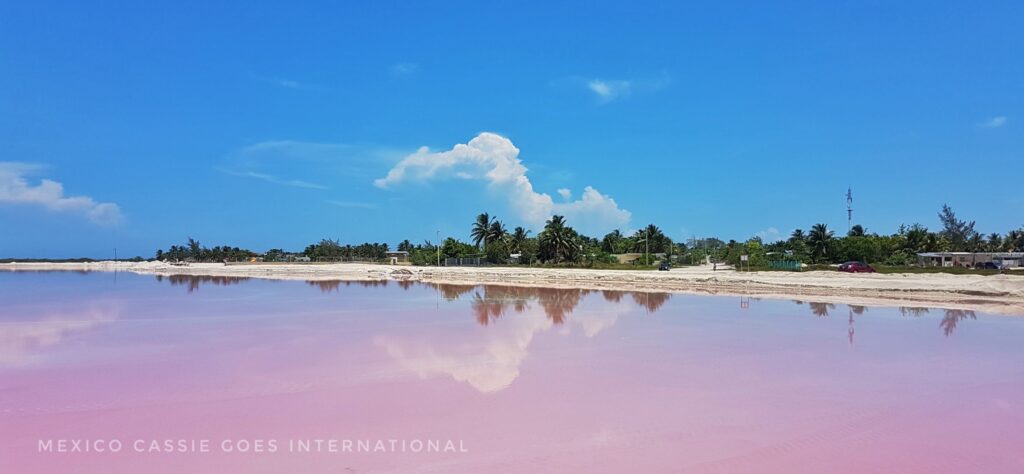
There are affiliate links in this article. If you click and make a purchase I could make a small sum at zero cost to you. Thank you!
Yucatan State vs Yucatan Peninsula, What’s the Difference?
The Yucatan Peninsula is the piece of land that juts out and separates the Gulf of Mexico from the Caribbean. It is made up of three Mexican states: Quintana Roo, Campeche, and Yucatan. Historically, most tourists have headed to Quintana Roo, flying into Cancun and visiting places like Playa del Carmen, Isla Holbox, Isla Mujeres, and Tulum.
In recent years, the State of Yucatan has caught the attention of travellers’ and tourists alike. With its vibrant capital city, Merida, gorgeous colonial towns such as Valladolid, and a number of UNESCO World Heritage Sites, the State of Yucatan has it all:
➡️ Beautiful beaches and great watersports
➡️ Archaeological sites and ancient ruins like the Mayan ruins of Chichen Itza
➡️ Stunning nature reserves and cenotes
➡️ Pueblos magicos and quaint fishing villages
➡️ A Yucatan road trip is an incredible opportunity to see the beauty of the region
⭐️ Yucatán is a great, and safe, option for a family spring break Mexico trip.
⭐️ Check our ready made Yucatan Itineraries ⭐️
🚗 Off-the-beaten-track in Yucatan
⭐️ Is Mérida worth visiting? – check the answer to this question now!
⭐️ Read up on the Maya Train Route to see if it’s something you could enjoy
All this plus a vibrant traditional culture with its own music, dance, art and cuisine contribute to making Yucatán one of the most popular tourist destinations in Mexico.
For the purpose of this post, when I write Yucatan, therefore, I am referring to the State of Yucatan, not the Peninsula. The Peninsula as a whole is safe.
That said, in the last few years, the State of Quintana Roo has seen a rise in cartel and criminal activity. Tourists are not targets of gang activity but there is always a small risk of being at the wrong place at the wrong time.
The US State Department recommends people exercise increased caution when travelling to Quintana Roo. It’s important to put some context to that statement by the State Department, because in July 2023, they also recommend exercising increased caution when travelling to Spain, Italy and Sweden.
Remember: There is no such thing as a risk-free life. It’s a good idea to get travel insurance prior to any trip, to Mexico and beyond. We recommend SafetyWing as it offers fairly comprehensive coverage so you need not worry if you fall because or regardless of the tequila.
Is Yucatan Really Safe?
Yes. The US Department of State, which issues travel advisories, recommends travellers to the Yucatan exercise normal precautions. It doesn’t get much safer than that.
📌 Being a stickler for supporting evidence, when considering the question, “is Yucatan safe?”, I decided to review statistics compiled by the Mexican Justice System and The National Institute of Statistics and Geography known as INEGI. I knew the numbers would be low but in some cases, they are so low they barely register. The main categories are Homicide, Kidnapping, Extortion, Car Robbery with Violence and Car Robbery without Violence. The annualised rates were all below two per annum with a population of over 2.3 million. Violent crime is extremely rare, particularly against tourists.
📌 The State of Yucatan takes its reputation as the safest state in Mexico very seriously and works very hard to keep it that way. There are police checks along the road as you enter the state and there are police checks as you enter the city of Merida.
📌 The State is so safe, it has been a significant driver of internal migration in Mexico. Mexicans from other parts of Mexico have been making Merida their home. An interesting aside, when a local Yucatecan refers to extranjeros –which translates as foreigners– they are not just referring to people from outside of Mexico but use this term for anyone who is not from Yucatan including other Mexicans!
📌 Many foreigners looking to move to Mexico with kids have Yucatán at the top of their lists, it’s so safe.
How Safe Am I in Towns Like Valladolid, Progreso and Mérida?
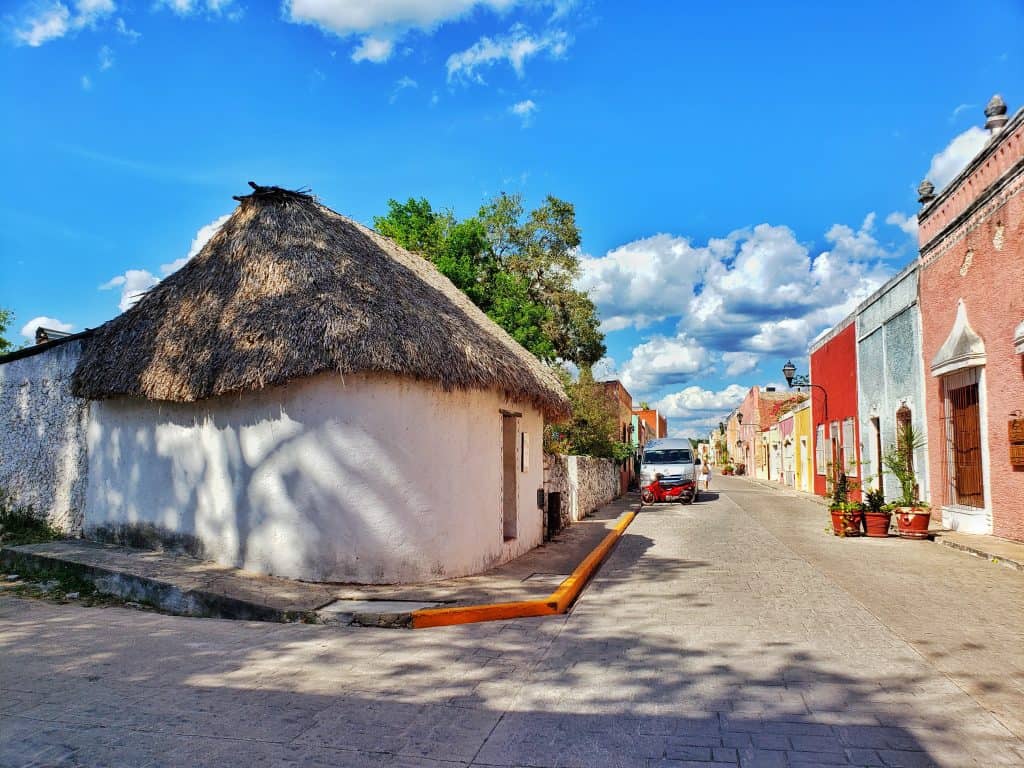
When you’re enjoying yourself in the big cities of Mérida, Valladolid and Progreso, you don’t have to worry too much about your safety. Use your common sense and follow the basic rules of being in any city:
These cities are safe places but there is simply no such thing as a zero crime rate. People are people wherever you are and there are always people whose behaviours are less than one would hope so do not think we are suggesting there is zero crime in Yucatán, that would be unrealistic and naive.
❌ Don’t flash wads of cash or go out dripping in diamonds
❌ Don’t leave your purse or phone unattended at a restaurant table
❌ Don’t leave visible valuables in an unlocked car (although I’ve done this more than I care to admit without any problems, I count myself lucky)
✔️ Pay attention to where your belongings are all the time, we’re not saying petty crime doesn’t exist
✔️ Do lock your hotel room / Airbnb door properly and if a safe is provided, use it
✔️ When going to the beach, take the minimum with you to avoid leaving valuables unattended when you take a dip in the ocean
✔️ When crossing the road, always look both ways, even when it’s a one-way street and never assume pedestrians have the right of way, even at crossings
✅ It is safe to walk around many areas of Mérida, Progreso and Valladolid at night without worry. As a woman, I regularly walk around my neighbourhood after dark. I exercise the same caution here as I would anywhere else. Ask in your hotel or your Airbnb host about your area to be sure.
❓ Are you wondering whether to visit Mérida or Valladolid on your trip around Yucatán?
Is Mérida, Yucatán’s Capital City Really Safe?
⭐️ In 2019, Ceoworld Magazine, a leading business publication, named Merida, Yucatan’s capital city, the second safest city in North America, beaten only by Canada’s Quebec City. The magazine reviewed 334 cities worldwide. Merida ranked 21st globally, ranking higher than every major U.S. Destination.
⭐️ Mérida has since been featured in Conde Nast’s Traveler magazine; The New York Times, the LA Times, and countless other media outlets. They all rate Merida and Yucatán as one of the top tourist destinations worldwide.
❌ The only two areas local friends have told me to avoid are Kanasin, 5km east of the city and a development called Flamboyanes near Progreso. This latter one is meant to be a no man’s land, despite the name evoking beautiful trees found throughout the region. Some sites tell you to stay away from the south of the city. I am not convinced it merits that reputation.
❓ So why doesn’t Mérida rank on most of the global safety indexes or in lists of the world’s safest cities?
Fair question.
I also wondered about this. I thought to myself “Ceobusiness World magazine is legit but why isn’t Merida part of The Economist’s recent Safe Cities Index of 2021?” The answer is quite simple. Our beautiful Merida is still too small. Most publications are looking at major cities and Merida with a population of just one million doesn’t register. If Merida did, you can be sure the city would be in poll position.
Eating and Drinking Safely in Yucatán
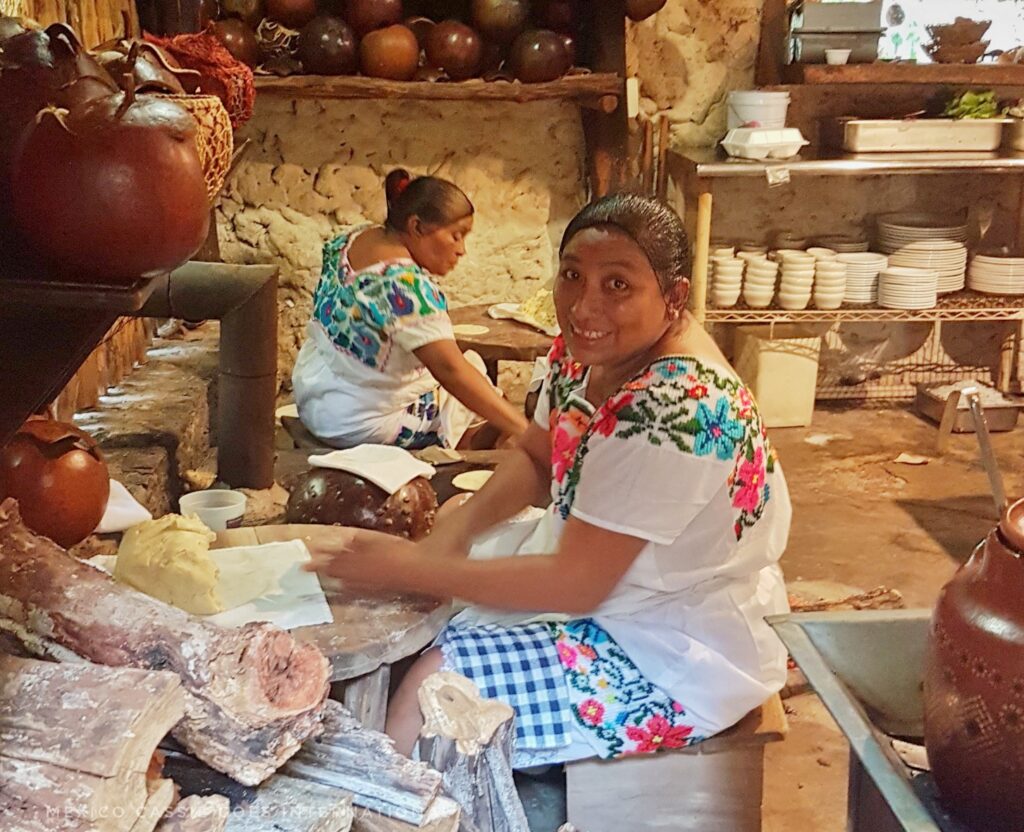
What about the Water in Yucatán?
❌ Do not drink tap water in Yucatán
✔️ You can brush your teeth and wash fruit/veg with it
✔️ Ice cubes, salads, and drinks made with water are safe as they are made with bottled water
It won’t kill you if you do drink the tap water but it might eventually give you kidney stones due to the high mineral content. Unlike some Mexican states where I will even brush my teeth with bottled water to avoid any unfortunate episodes of Montezuma’s revenge, this is not the case here.
📌 Do: Always buy bottled water to drink. Restaurants will always have agua de la casa. It’s either garafon water (Think large water cooler bottles of purified water) or a water purifying system. They may not always offer it as they would rather sell bottled water but most will bring it to you if you request it.
📌 You can drink juices, agua frescas and eat ice on the streets and in restaurants because no one drinks the water so everything is made with clean water. Same goes for salads and fruits.
How Do I Know if Food is Safe?
📌 Generally it will be. I’ve never had problems with food in restaurants or on the streets in Yucatán. If you see other eating in a restaurant, assume it’s safe. If you take one look at a place and think, “uhuh, no way, not today”, just move on. But generally, because everyone cooks with the garafon water, food shouldn’t make you sick.
Getting Around Yucatán Safely
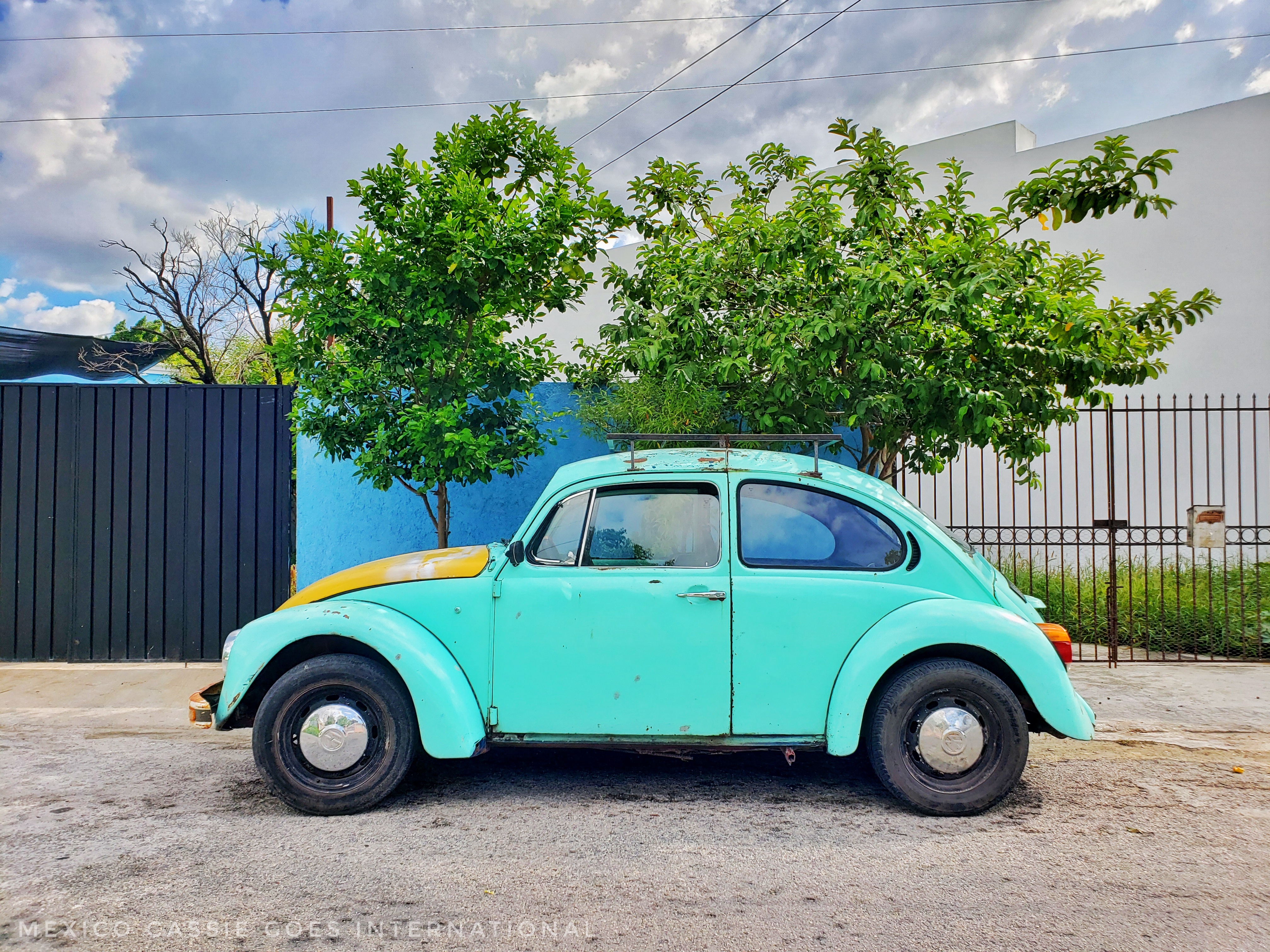
There are a number of ways to get around Merida and Yucatan. All of the options are safe and run similar risks as taking transport anywhere else in the world.
Public Transport: Buses and Colectivos
🚌 ADO buses for the cross-peninsula journeys between Mérida and the Caribbean Coast, are fabulous. They offer comfy seats, on-board wifi, seatbelts and an easy app to make your reservations. This a great option if you are travelling between states in the Yucatan Peninsula.
🚌 Buses between cities within Yucatán are less plush than those big coaches that cross state borders but they’re perfectly comfortable and safe.
🚌 Has there been an ADO bus accident? Yes, of course there has, buses unfortunately sometimes crash. Some years ago, one bus was held up going from Cancun to Merida. These things can happen but they are rare and unlikely incidents.
🚌 Local buses have been improving dramatically over recent years. The new Va-y-Ven buses in Mérida are part of an expanding transit system that service the city and pueblos around. You can buy a transit card at any Oxxo and these buses are wheelchair and visually-imparied friendly.
🚌 Colectivos are the small white combi-vans you will see across the whole of Mexico. These are cheaper than ADO buses and they services both smaller towns and villages. For example, if you want to travel from Mérida to Izamal, these are a good option. Colectivos have no set timetable, they simply depart when they are full and by full, we mean f-u-l-l.
Taxis and Ride-Apps
🚕 Uber and Didi are extremely popular in Yucatan. These apps offer options to share your ride information, making already safe rides even safer.
I am part of a Teen Parent Group and many parents send their teens alone in these cabs so that gives you an idea of how safe locals consider these services to be.
🚕 Few people hail taxis in the street anymore. My mother-in-law still does when she is out shopping but she is definitely an exception. They tend to be more expensive, less well cared for, and I’ve heard some claim that these taxi drivers may try to take advantage of an unsuspecting tourist. I never had that experience but it is something to keep in mind, especially as Ubers are not allowed to pick up at Merida International Airport (MID).
Airport Tip: If you want to use a taxi-app at the airport in Mérida, you’ll need to leave the airport grounds entirely. Walk approx 10 minutes to what is conveniently named “Uber y Didi punto encuentro seguro” in Google maps and book your cab from there.
Driving in Yucatán
The two most common worries people have about driving in Yucatan are,
➡️ What if the police stop me?
➡️ Are the roads actually safe?
You do not need to, and nor should you, fear the police in Yucatan
Reasons the Police Might Stop A Driver in Yucatán
🚓 Routine check upon entering the state of Yucatán, the city of Mérida or leaving beach areas.
➡️ The roadblock checks at the entrance to the state and city are searching for drugs and weapons. You’re unlikely to get stopped here but if you are, just be polite and helpful.
➡️ On holidays such as Semana Santa (more or less Spring Break) and during the summer there are often police checks leaving beach towns to discourage drinking and driving. You may be asked to blow into a breathalyser. Don’t argue.
🚓 If you do something wrong. I was stopped going the wrong way up a one-way street. The cop guided me to do a 3-point turn, checked my licence, asked me for help with English phrases and sent me on my way, complementing me on my Spanish!
🚓To help you. You’ll regularly see the police stopping to help people whose cars have problems. They once stopped to help me change a flat tyre.
🚓 Random ID checks – again, don’t argue, just show your papers. The police in Yucatán aren’t going to keep them.
❌ Bribes / Mordidas – I can’t say there has never, in the history of the Yucatán Police Force, been an officer who has asked for a mordida (literally translated means “a bite”, here meaning “a small bribe”) but it is much rarer here than anywhere else in Mexico.
Road Safety
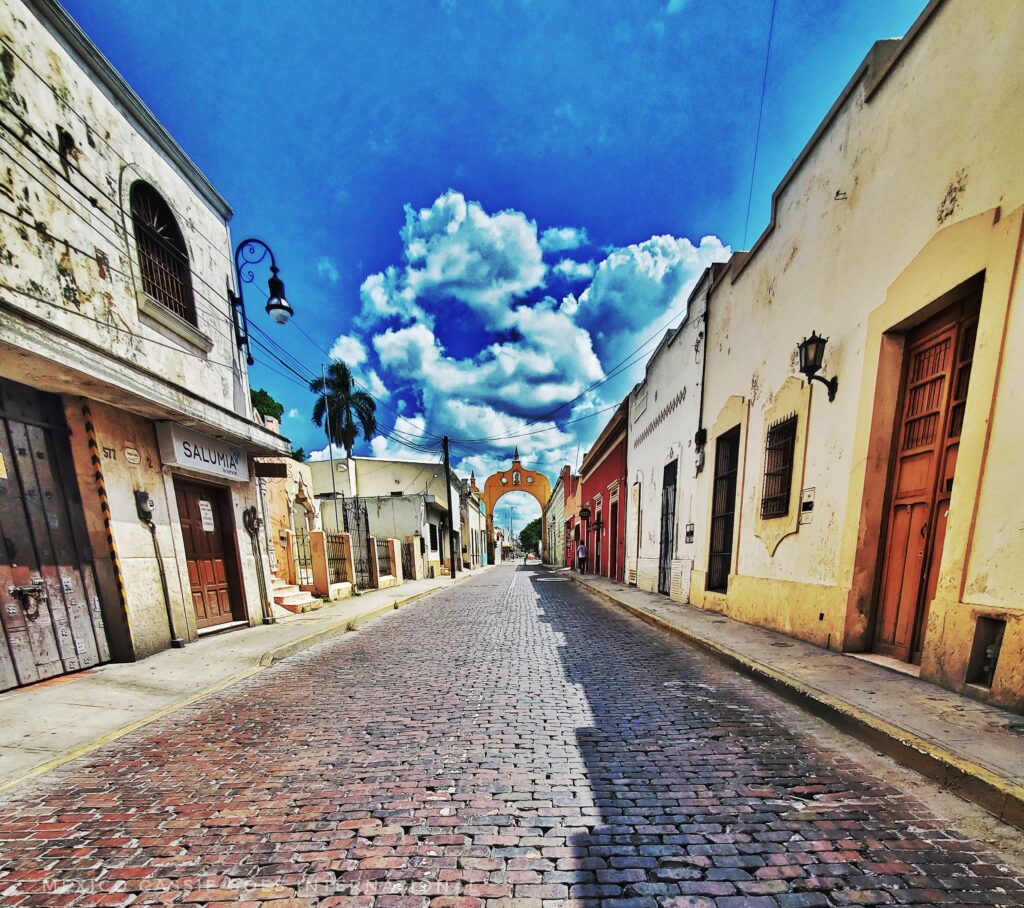
The fact is that driving a rental car here opens up a world of possibilities when it comes to your travel and with car insurance and open eyes, you will be just fine on the road. You don’t need to worry about being hijacked or driving at night in Yucatán. The roads are perfectly safe. Just keep the following points in mind:
⛔️ As far as road safety, most of the roads and highways are well maintained and are in good to excellent condition. Sign posts are good and you have no reason to fear for your safety driving along these roads. Car-jackings, car robberies etc simply aren’t an issue here for the time being.
⛔️ There are some roads in the towns in Yucatán that could be considered more pothole than road, though they usually do get at least a rough fill-job done pretty quickly.
⛔️ In towns and on non-highways, Mexican love to install speed-bumps (called topes). The fun here is that they’re rarely a standard size and will often catch you unawares, scraping the bottom of your car as you crunch into it!
⛔️ It’s always important to remember that the only requirement to get a driving licence in Yucatán is a quick theory test and a requirement to be able parallel park between a set of cones. Keep this in mind when you see some um, questionable road etiquette or driving decisions from locals.
⛔️ Signals/Indicators seem to be more of a suggestion rather than a requirement and roundabouts are not for the faint-hearted. Instead of easing in to allow everyone a chance to get a round, it’s more of a formula one / game of chicken affair.
⛔️ Highways, as I said above are well-maintained and rarely busy but in the rain, be aware locals will use their hazard lights rather than keep a truly safe distance between cars.
⛽️ Where you can, pay for your gas with cash (and remember, this must be in Mexican pesos). While I believe credit card fraud to be extremely rare in Yucatan, when it does happen, it seems to be at gas stations.
Pedestrian Safety
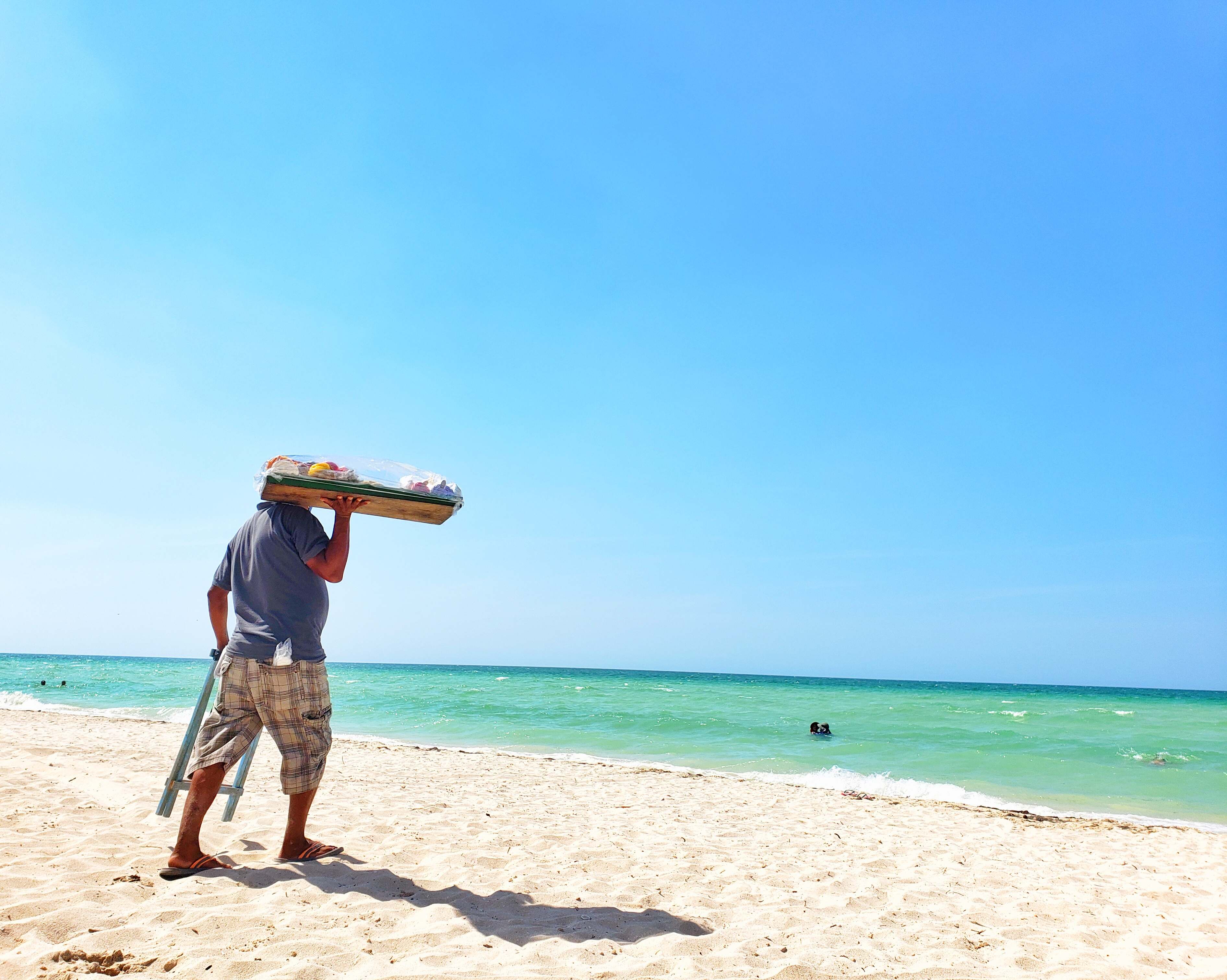
🚦 As a pedestrian, don’t ever assume you have right of way even if legally, you do. Zebra crossings are no guarantee of a safe crossing.
Also, it’s hot almost all the time so if you’re walking, apply sunscreen and keep hydrated!
Sexuality and Gender in Yucatán
🏳️⚧️ 🏳️🌈 “Live and let live” seems to be how it goes here, particularly in relation to foreigners. Merida hosts its own Pride event (generally attracting around 20,00 people) and is a pretty tolerant society. PDAs aren’t huge in Merida regardless of your orientation. There are a few openly gay bars in town, regular queer markets and demonstrations and a thriving drag scene.
🏳️⚧️ 🏳️🌈 Queer marriage is legal and it is not unusual to see queer or same sex couples on the streets and in bars together.
Drug Use in Yucatán
There are moves to legalise all drugs within Mexico but this hasn’t happened yet. I recommend erring on the side of caution. Just don’t do drugs, kids.
❌ Weed, currently, seems to be confusing everyone and is something of a grey area. I’ve read that you shouldn’t be arrested if you are carrying less than 5 grams but I’ve also read that police officers may not follow this line. If staying out of prison is at the whim of the police officer, easier not to be caught with weed.
❌ CBD oil is everywhere. You can pop into any pharmacy and get CBD oil although it won’t have THC, the active ingredient in weed.
Is Yucatan Safe? – Environmental and Safety Issues
Yucatan has three seasons, and each comes with its own issues:
Dry/Cooler Season: October – Feb/March
☃️ Generally thought of as the best time to travel to Yucatán, it’s also the cold period for locals. I seldom use my pool for these months and Yucatecos regularly refer to the coldest spells as “La heladez” (the freeze) and bring out the scarves, hats and gloves. (It’s rarely below 20 C [68F]by the way)
➡️ 🦂 You may spot a scorpion during the dry season when they come looking for water. There are two sizes and two colours: the large ones are less venomous than the small and the black is less venomous than tan colour. Neither type of scorpion found in Yucatán can kill you with a sting (MexicoCassie was stung by a scorpion in Mérida.) – you drink some antihistamine and expect 24 hr of swelling.
Hot Season: April – May
🔆 These are the hottest months and by hot, we refer you to the fact that locals call Mérida “El Inferno” (Hell) during this time of the year. If you do visit during this period, please use plenty of sunscreen and stay well hydrated. If you’re walking, try to stay in the shade.
Rainy Season: June – September
☔️ This season is still very hot but it’s also often very wet and humid. There isn’t rain every day and when it does rain it tends to be an aguacero – a tropical downpour for an hour or two – followed by a brief respite from the humidity. It’s important to remember that this is also officially hurricane and tropical storm season. While there are very rarely hurricanes, there are hurricane warnings that need to be heeded until they are downgraded to a tropical storm warning. Pay attention, and if there is a storm warning, find out from locals what they’re doing to prepare – maybe you’ll want to have some extra food and water in your room just incase there’s no electricity for a day or so.
➡️ 🦟 The rains, of course, bring the mosquitos. They aren’t too bad in themselves but 2023 saw an increase in Dengue cases. Be sure to use a good repellant to prevent Dengue.
Other Animal Issues
➡️🕷 Tarantulas and other large spiders are also native to the region, though not usually found in the city. The local tarantulas are not aggressive, only mildly venomous and in fact the orange-backed one is recommended as a pet.
A Final Note to Answering the Question, “Is Yucatán Safe?”
Whether you are at tourist areas such as the beach or the city or exploring the jungle and cenotes, there is really one key rule to follow: be respectful of local laws, and don’t do anything illegal. If you follow that rule along with common sense, you are in no more danger here and likely less than back home.
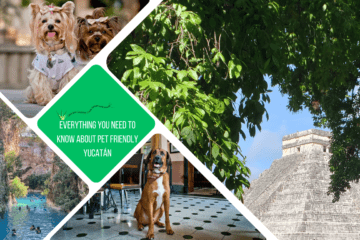

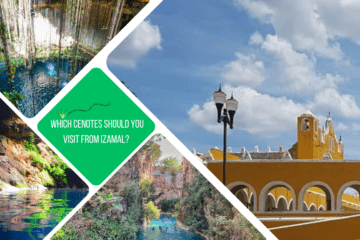
0 Comments